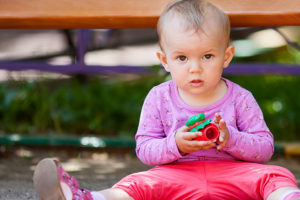Conversation enriches the linguistic environment of young children
A language-rich environment is one in which children are surrounded by spoken language, songs, reading, and have many opportunities throughout all their activities in the day to communicate with other people and participate in reciprocal interactions. Such an environment is important for children’s early learning and can have a strong impact on early language, vocabulary, reading and math skills, as well as on the social and emotional development of children.
Children acquire language skills at an early age
A study published at Cognitive Studies Journal following a group of children for 15 years, from 19 months to 16 years old, shows that reading comprehension at age 12 was predicted by vocabulary at 19 months and emergent literacy at school entry.
The study was based on previous research suggesting that individual differences in reading and language development are stable across childhood, reading and vocabulary are intertwined, and children’s oral narrative skill contributes to later reading comprehension.
The study measured for maternal vocabulary, a host of language and (early) reading measures, including vocabulary, early literacy development, oral narrative skill, and reading comprehension, all were administered across eight time points to a sample of 58 children.
The study concluded that early language acquisition is a predictor of future reading comprehension skills:
- Vocabulary was generally a strong predictor of later vocabulary and reading development.
- Children’s oral narrative skills measured at school entry related to their reading comprehension performance at age 16.
- Findings show links between vocabulary, early literacy, oral narrative and reading comprehension skills.
- Specific early language and reading skills were generally strongly correlated over time.
Promoting vocabulary and reading development at an early age
Other research studies show that some young children are more exposed than others to more language in their homes, early learning programs, and the school environment. This difference in the number of words and reciprocal interactions that children are exposed to is known as the “word gap. ”
Conversation enriches the linguistic environment of all young children, including children who are not yet speaking, children with disabilities or some delay, and children who are learning in more than one language.
Children benefit from “fluid” conversations. Fluid conversations are characterized by giving children many opportunities to speak and communicate, raise open questions, encourage them to think and imagine, and hold a dialogue with many verbal exchanges.
Early learning programs help children develop language skills. Teachers can enrich children experience following these recommendations:
- Talk about what kids are doing during daily routines.
- Ask children about what they are doing, what they did before and what they plan to do next.
- Encourage children to make and consider other possibilities.
Families can try these strategies at home, in their own language to improve the language environment of their children.
With information from the Department of Education.




